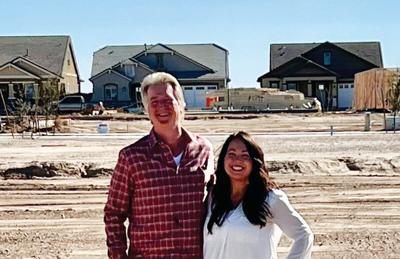The collapse of a handful of financial institutions in recent weeks sparked fear among people thinking of home shopping this spring and flashbacks to the turmoil in the real estate market that began in 2008 – even in Queen Creek, which has been riding a growth wave.
Mondai Adair, (pronounced “Monday”) a longtime Keller Williams agent who now specializes in Queen Creek resale homes, says there is no reason to think the collapse of several regional banks will have any effect on local real estate.
“We don’t feel that their crisis will affect the larger banks (Wells Fargo, BofA, Chase, etc) due to current, strict policies in place,” Mondai said. “This is a totally different crisis than what took place 2008-2011. Our banks’ lending policies and processing guidelines have become stricter since the previous financial meltdown.”
Mike Steck, a real estate agent with RETSY, said that while the financial issues surrounding a back collapse are serious, thinking they could have any effect on local real estate prices is misguided.
“It’s basically a red herring,” Steck said. “The fear word, the word that’s being put out there is ‘bank.’ And when it’s put out there without additional information or explanation or context? That’ where it can create a lot of fear in people.”
On the other hand, buyers have been skittish because of rising interest rates, and for good reason.
Even though those rates have dipped and waivered a little bit in recent weeks, Adair does not see them taking a sharp drop anytime soon, largely because of the economic conditions in the country.
“Another determining factor for real estate activity is the measure of inflation,” she said. “Inflation is keeping the interest rates up. The last job market report was good so that has been keeping interest rates higher. We are going to possibly see an interest rate drop in June.”
Steck said the recent interest rates hikes that were designed to combat inflation only reduced affordability for potential homebuyers, especially first-time buyers.
One place real estate has not slowed down and shows no signs of doing so is here in Queen Creek, where the median home price now sits north of $650,000, according to Mondai, who focuses specifically on Queen Creek and is in the process of building a new house with her husband Linn, who also happens to be in the same business.
“That was part of our attraction to one another. We met at church,” said Linn, a long-time new home sales agent for Fulton Homes. “She was in resale and I was in new homes so we had a lot to talk about when we first met.
“She had a lot of respect for Fulton Homes and that helped me to get a date with her,” he chuckled. “I told her I worked at Fulton Homes so that intrigued her to go out with me.”
Even though they live under one roof, the Adairs make it clear they do not work together.
They have always been good at different parts of real estate and still have a lot to talk about as the town deals with a housing shortage coupled with high demand from people moving in.
Mondai said home buying really took off during the pandemic.
“We had people coming in from all over the country who wanted to live in Arizona,” she said. “That’s what created the frenzy in 2020, right at the start of COVID. A lot of companies were starting to leave the more strict states that had strict guidelines for COVID. California had a huge migration into Arizona, both residents and businesses.”
The raw numbers tell the story of Queen Creek real estate and how dramatically it has taken off in recent years.
In 2000, there were a total of 200 single family homes sold, according to the Multiple Listing Service, the online site for realtors. In 2004, there were 1,400 home sales and by 2020, the number jumped to 2,450, thanks to eager buyers during the pandemic, Mondai said.
Queen Creek is far from that one stop light town that Linn Adair remembers when Fulton Homes sent him to sell new homes to buyers willing to take a chance on the town in 2012, when the Great Recession still loomed prominently in the rearview mirror.
“I remember when I was selling there, I had other builders walk in, like presidents of other builder companies and say ‘why is Fulton out here?’” he said.
“They were shocked that Fulton wanted to come out here and sell that product because at that time there was just nothing but dirt and empty neighborhoods that builders had to bail on because of the crash in ‘07 and ’08,” Linn said. “Shortly after that Queen Creek really started taking off and neighborhoods started happening.”
The town’s population is currently not quite 60,000, but projected to grow to more than be above 90,000 by 2025.
It is already facing a drastic shortage of affordable housing while at the same time marketing land in town to developers who will bring industrial jobs to be staffed by employees who will not be paid nearly enough to live here. Even a two-bedroom apartment now rents for more than $2,400.

